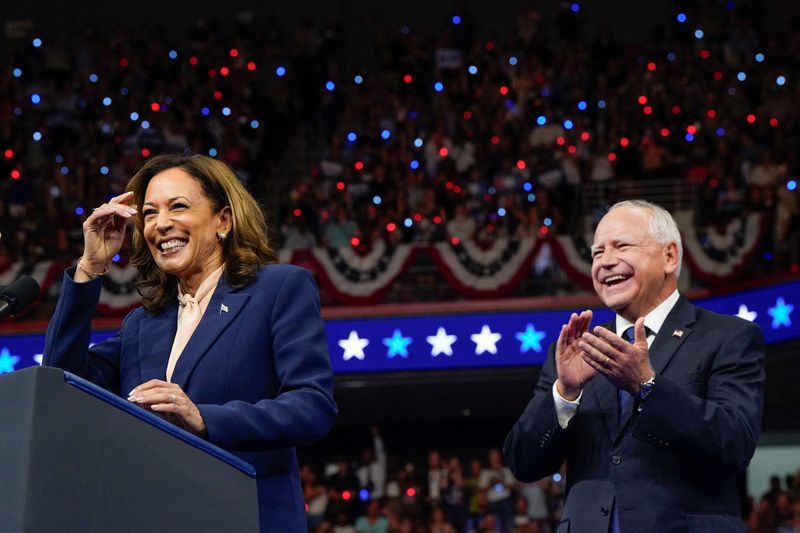
Vice President Kamala Harris currently leads former President Donald Trump by around 1.5 percentage points in national polling averages and holds a slight edge in Pennsylvania, the pivotal swing state that could secure the decisive electoral vote. Prediction markets imply a 52-54% chance that Harris will win in November.
Harris began her campaign with narrower polling margins than those of President Biden when he stepped down, but she has since gained around 2 percentage points nationally and approximately 1 point in the tipping-point state, Goldman Sachs highlighted in a note.
Since August 1, the odds of a Republican victory in the White House have decreased by 10 percentage points, and the likelihood of a Republican sweep has fallen by 4 percentage points.
Meanwhile, the odds of a Democratic divided government—defined as a Harris victory with Republican control of one or both houses of Congress—have increased by 11 percentage points.
According to Goldman economists, this is now “the most likely implied scenario, but the outcome is very uncertain.”
Trump’s favorability has stayed around 43% this month, after rising by about 1.5 points in late July. Harris, on the other hand, has seen her favorability jump by 8 points to 45% and her approval rating rise by 3 points to 41%, showing a decoupling from Biden’s approval rating. Her current approval is comparable to Trump’s ahead of the 2020 election.
In the meantime, Tim Walz’s approval rating is 6 points higher than JD (NASDAQ:JD) Vance’s.
As the Democratic Party convention continues through August 22, economists point out that convention bounces have averaged around 2 percentage points in recent years. However, Harris’s increasing support ahead of the convention suggests she might see a smaller-than-average bounce.
On August 19, Democratic delegates approved the party’s platform, which was drafted before Biden stepped aside.
“As we have noted before, we do not expect the Democrats’ fiscal and trade policy agenda to shift meaningfully under Harris, while a Trump victory would likely bring additional tariffs,” said the economists.
The first Harris-Trump debate is set for September 10, with the vice-presidential debate scheduled for October 1. A second presidential debate may be added in October.
To read the full article, Click Here
